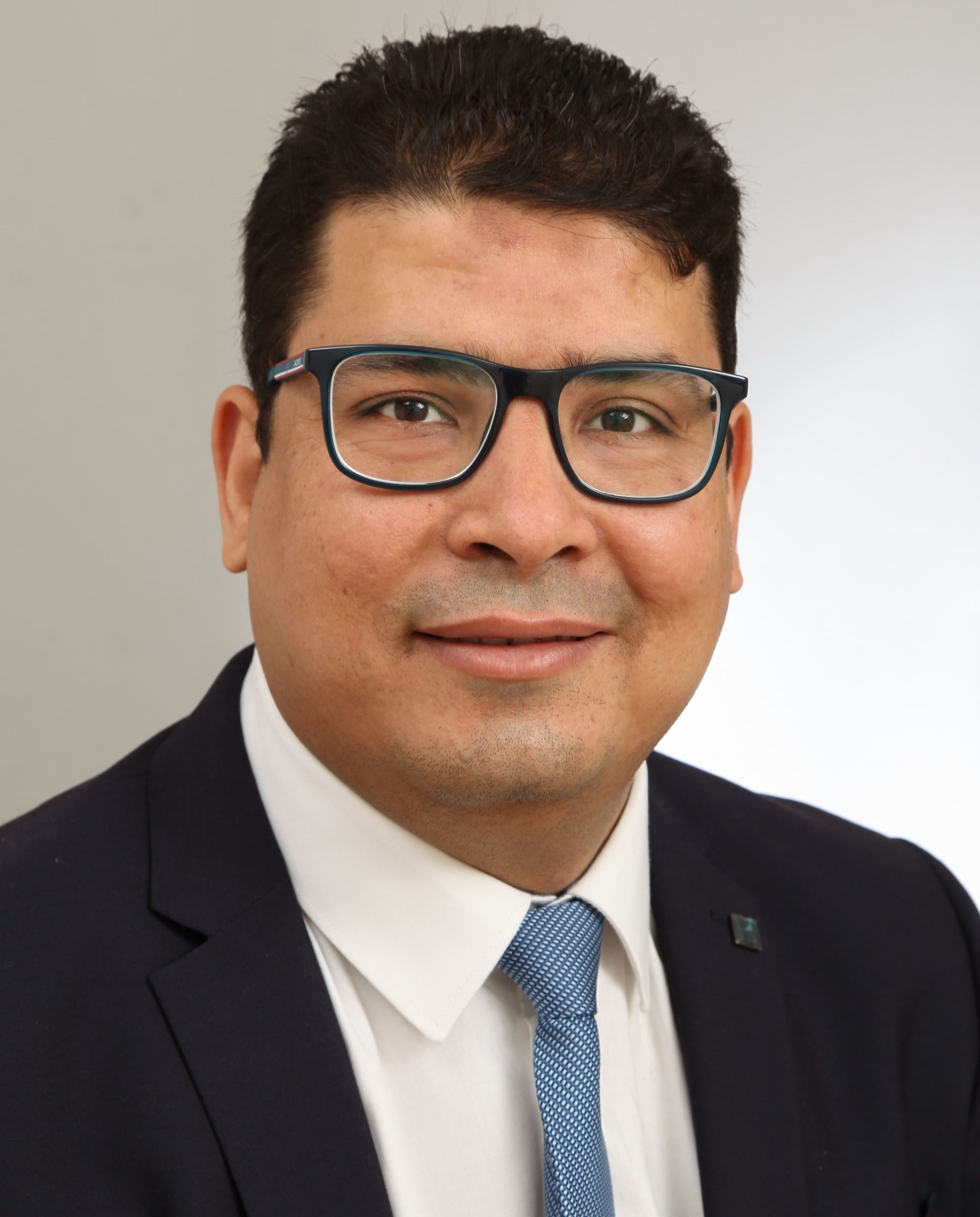25. June 2024
Training dates 2024 for prospective ÖSD examiners
Your chance to become an ÖSD examiner – secure your appointment for 2024 now! Take…

ÖSD exam chairman, university lecturer, examiner, authorised interpreter and publicly appointed translator. In 2021, he received his doctorate from RWTH Aachen University in the field of linguistics and communication science.
In addition to the examination centres, a central pillar in the network of the Österreichisches Sprachdiplom Deutsch (ÖSD) are the people behind these institutions. ÖSD examiners and exam managers or founders of examination centres play a decisive role in the worldwide spread of the German language.
The advantages of dealing with German as a foreign or second language professionally are numerous – as is the individual approach of German teachers all over the world.
We spoke with Dr. Yasser Soliman Muhammad. His personal story shows how he found his way to the German language and thus set the course for a remarkable career between Egypt and Germany.
ÖSD: Dr. Muhammad, your individual path arouses curiosity due to the diversity of your activities. Would you tell us about yourself?
Yasser Soliman Muhammad: Of course. Let’s start with the present. I am currently working as a lecturer in German as a foreign language, as well as a publicly sworn interpreter and authorized translator for Arabic. In Cairo, I run the MIG language school, which I founded with my colleague Ali Mansour in 2015. And since 2018, I have been managing the ÖSD examination centre as examination official and coordinator for international cooperation.
That all sounds very exciting! How did such a career come about?
My academic background includes German Studies, Arabic Studies and Islamic Studies, which I graduated with top marks from the Faculty of Foreign Languages and Translatology at Al-Azhar University.
I received my doctorate in German linguistics from RWTH Aachen University and was awarded “magna laude” for it. My research focus is on the analysis of Islam stereotypes in the German-speaking Salafism discourse.
In addition to my PhD in Intercultural German Studies, I completed a master’s degree in Comparative Political Linguistics with distinction at Al-Azhar University in Cairo, with a focus on Arabic and German political language.
Have you always wanted to learn or teach German?
To be honest, my German studies were more of a coincidence. I was one of the best high school graduates in Egypt, and German studies was the highest-ranked subject that could be studied at Al-Azhar University after the numerus clausus. Originally, I wanted to study interpreting for the language combination English-Arabic, but suddenly I found myself studying German studies.
However, through intercultural encounters and the study of German philosophy and literature, I quickly developed a fascination for the German language. This motivated me to continue my German studies both in Cairo and in Germany. By the way, I only learned German at university, and at the age of 19 I began to learn the language without any previous knowledge.
What was that like for you personally? German is known to be a “difficult” language. Were there any particular challenges with regard to the German language during your studies or in your professional career?
Absolutely! One of the biggest hurdles at first was overcoming language barriers, as I only learned German at university.
The complex structures of the German language and the high level of precision, which is required especially in academic discourse, presented me with great challenges. In addition, there were clear differences in scientific communication and argumentation. These initially led to misunderstandings and required me to take a different approach to research and presentation.
Integration into the German academic system was not always easy, as I had to be at a very high level, both professionally and linguistically.
However, through intensive language training, the continuous use of the language in academic and professional contexts, and the exchange with German and Austrian colleagues and lecturers, I was able to gradually overcome these problems.
The intercultural exchange also helped me to better understand cultural differences and ultimately to successfully integrate into the special work context.
Now let’s move on to your cooperation with the Österreichisches Sprachdiplom Deutsch (ÖSD). What was your path from a degree in German studies to the function of ÖSD examination official?
During my academic career, I have been able to gain valuable international experience through scholarships such as the DAAD and Erasmus+ scholarships as well as the doctoral scholarship of the Rosa Luxemburg Foundation (RLS) or through the coordination of international projects, including GIZ, BAMF projects and Telc examinations abroad.
In addition, I have many years of experience as a lecturer and examiner for German as a Foreign language. This combination of academic career and practical work paved the way for me to my current position as ÖSD examination official.
What role do German exams such as those of the ÖSD play in career and study planning?
German exams, such as those offered by the ÖSD, are essential for career and study planning, as they provide objective and internationally recognised proof of language competence. They are a decisive factor when applying for courses of study and jobs, especially in Germany and Austria as well as in the other German-speaking countries. In my experience as an examiner, I have seen many success stories of candidates whose German certificates have made the difference in the application.
Dr. Muhammad, thank you very much for the interview and wish you continued success and energy in working with the ÖSD to convey the importance of high-quality German exams as a groundbreaking career factor.
Here you can get to know how you can train your teaching staff to become ÖSD examiners or obtain an examiner licence yourself.